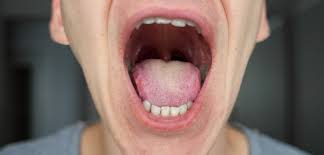
November is Mouth Cancer Action Month. Mouth cancer, or oral cancer, can affect various parts of the mouth. This includes the lips, tongue, gums, and throat. It is a serious condition that requires early detection and treatment. In this blog , we explore the causes and symptoms of mouth cancer. We also discuss preventive measures you can take to avoid mouth cancer. By knowing the signs and taking proactive steps, you can reduce your risk of mouth cancer.
Causes of Mouth Cancer
Several factors can contribute to the development of mouth cancer. Smoking cigarettes, cigars, pipes, and smokeless tobacco increases the risk of mouth cancer. The harmful chemicals in tobacco can damage the cells in the mouth and lead to cancerous growths. Heavy and prolonged alcohol use is a significant risk factor for mouth cancer. Alcohol can irritate the cells in the mouth. This can make them more susceptible to cancer formation. Combining alcohol with tobacco use further increases the risk.
Certain strains of HPV mean an increased risk of developing mouth cancer. Practicing safe sex and getting vaccinated against HPV can help reduce the risk. Prolonged exposure to the sun’s ultraviolet (UV) rays can increase the risk of lip cancer. Wearing lip balm with SPF and protecting your lips from sun exposure can lower the risk.
Signs of Oral Cancer
Being aware of the signs and symptoms of mouth cancer is crucial for early detection. The following signs may mean you have mouth cancer.
- Persistent Mouth Sores. If you have ulcers or sores in the mouth that do not heal in two weeks, get them checked out by a dental professional. These sores may appear as red or white patches and may also have pain or tenderness.
- Unexplained Oral Bleeding. Unexplained or persistent bleeding in the mouth is something you should not ignore. It may be a sign of an underlying issue, including mouth cancer.
- Difficulty Swallowing or Speaking. Difficulty in swallowing, chewing, or speaking can be a sign of mouth cancer. This difficulty may arise due to tumors or growths in the oral cavity.
- Pain or Discomfort. If you have unexplained pain or discomfort in the mouth, throat, or jaw, visit your dentist. It may be a sign of various oral health conditions, including mouth cancer.
Prevention of Mouth Cancer
While you cannot prevent all cases of oral cancer, there are some ways to reduce your risk. Quitting smoking and avoiding tobacco use reduces the risk of developing mouth cancer. Seek support from healthcare professionals or support groups if needed. You should also drink alcohol in moderation, or consider eliminating it altogether. Scientists label moderation as up to one drink per day for women and up to two drinks per day for men.
Practice safe sex and get vaccinated against HPV to help reduce the risk of mouth cancer. When spending time in the sun, apply lip balm with SPF protection. You should also consider wearing a wide-brimmed hat to shield your lips from harmful UV rays. Brush your teeth at least twice a day, floss daily, and visit your dentist for check-ups and cleanings. Good oral hygiene supports oral health and can help detect any potential issues early on.
Contact Us
Knowing the signs of mouth cancer is crucial for early detection and treatment. By taking preventive measures, you can reduce your risk of mouth cancer. If you experience any of the signs mentioned, contact Magnolia Dental today. We can provide a thorough evaluation and test for mouth cancer. Be proactive about your oral health and stay informed to protect yourself and your mouth.

